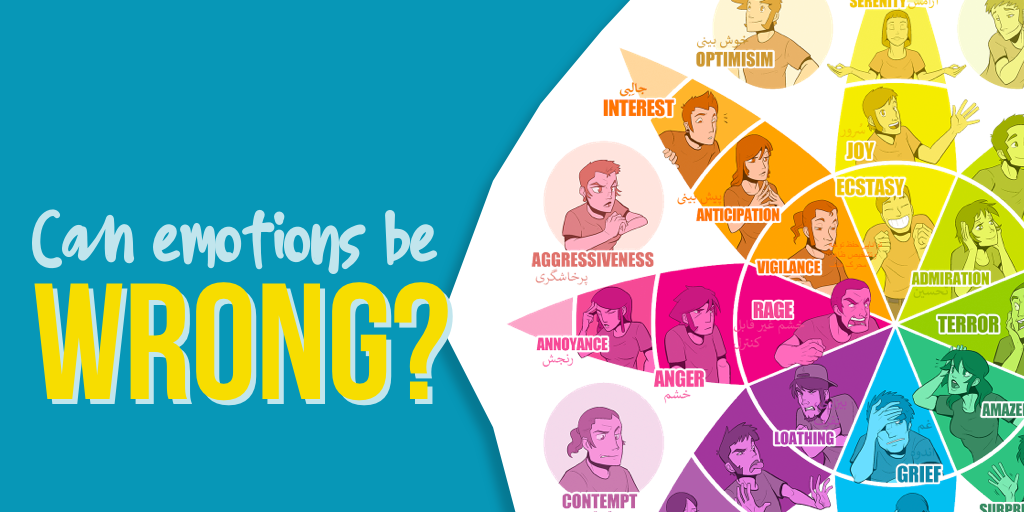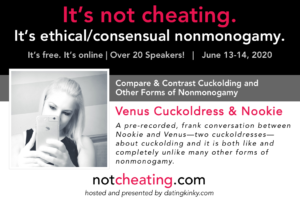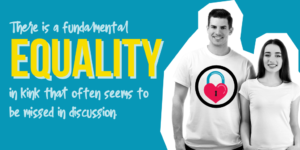I say no.
Because emotions in my mind are simply feedback. They are not good or bad. They simply are.
They are information.
And like many other processes, they are a result of input (which can absolutely be wrong), and they result in feelings, thoughts, and actions (which can also be wrong).
And some of you will probably say that I’m being pedantic (I may be), or that I’m just wrong (also possible), however, looking at my own experiences this way has made a difference to me, and so I’d like to share it with you.
A few years back, I had a lovely date night with a charming man in San Francisco. We flirted, danced, explored interesting food and drink, and more than anything else, we talked. Our conversation covered a range of topics from 80s emo boys to the idea that feelings and emotions could be separated and by doing so, humans could understand themselves better.
And that stuck with me.
Emotions Versus Feelings Versus Thoughts Versus Mood Versus Actions
That’s a lot of versus, I know. I can be an EXTRA sort of person sometimes.
Let’s start at the beginning.
Emotions. Happen in about 1/4 second in our minds AND bodies in response to stimulus, either real or imagined. Chemicals are produced to prepare us for some sort of reaction, and are released in another 1/4 second. Emotions last about six seconds, total, and are designed to warn us about something going wrong or inform us when something goes right.
Feelings. Are usually a combination of multiple emotions happening in our bodies at the same time, or so close to each other as to not make a difference. They happen after we experience the emotional sensation/chemical dump and begin to process it in our minds. They are both the beginning and the result of interpreting the emotions we experience. Feelings, like emotions, are experienced in both mind and body. For example, we talk about feeling pain both physically and emotionally.
Thoughts. As we process and interpret our feelings, we think about them. We interpret them further and assign meaning consciously.
Mood. A gathering of the thoughts we are having added to other stimuli such as weather, company (human or animal), atmosphere and physiology to create an overall experience that colors any and all additional inputs (which can in turn effect emotions). Moods can last as little as a few minutes, and as long as, well…days? Months? They can stick around.
Actions. What we do in response to our thoughts and moods.
Some examples…
Emotions: Experience emotions and interpret as painful.
Feelings: I am sad.
Thoughts: My heart is broken.
Mood: Wallowing in ennui.
Actions: Watching sappy romantic movies, eating ice cream from the tub, and crying.
Emotions: Experience emotion with heartbeat speeding up, mind feeling light and interpret as pleasure.
Feelings: I feel love.
Thoughts: This person is wonderful! I love them.
Mood: Floaty, happy, obsessed.
Actions: Sending sweet messages, smiling a lot, whistling, maybe having sex (together or solo).
Horror movies = love?
Did you know that watching a horror movie can put your body into state of emotion like fear and anxiety that mirror reactions to arousal?
So, when you feel those reactions, your mind will look for environmental explanations and will not recognize the movie as the root cause. If you experience a racing heart or sweaty palms, and there isn’t a legitimate reason to manifest fear symptoms, your mind can confuse these physical signs as attraction.
That why the old trope of a woman screaming in the theater and her date casually putting their arm around her shoulders exists.
Because humans instinctively know the connection.
Were the emotions wrong? Nope. But the interpretation, thought, and any follow-through could be predicated on the wrong thing.
So, who cares?
Well, I do. And you might. smiles
What that conversation did for me has lasted long beyond the boundaries of a single evening.
I learned more about how to be smarter with my feelings, and to pause and take time to experience my emotions, really dig deep into my feelings, and move forward with more intention into my moods and actions.
Of course, I’m not perfect. No one is.
But this model helped.
Steps towards greater emotional intelligence:
- Learn more words for feelings. I wrote about emotional vocabulary in May of 2019 (https://datingkinky.com/blog/personal/emotional-vocabulary-do-you-kilig-bro/), as I was diving deeper into the exploration of my emotional self. I learned that most people go through life experiencing a small number—about five—of emotions over and over. Expanding your vocabulary can expand your ability to FEEL and experience in a wider range.
- Label your feelings. This simple idea creates better communication and connection between the emotional and cognitive parts of our brains according to research. Expanding your vocabulary in step one can really help here.
- Understand the function of your emotions. Plutchik’s model is an interesting presentation, with eight foundational emotions: joy, trust, fear, surprise, sadness, anticipation, anger, and disgust.
It also provides some excellent vocabulary ideas for your feelings.
- Examine your feelings and thoughts. Before changing your mood or taking action, take a moment to examine what might have triggered your emotions and why you labeled them the way you did. You might find that you’ve made assumptions that are not necessarily true, or that you are experiencing a response to stimuli that does not require a response (like a horror movie or a sad novel).
- EXPERIENCE your emotions without needing to do anything about them. Not all emotions or feelings need to result in action. Sometimes, it’s enough to just take in what they are telling you and move forward.
These steps have made a huge difference in my life and in my leadership within my power exchange relationships.
I still fuck up. I’m as human as anyone else.
But I fuck up less and when I do, I can catch myself and fix things more quickly.
And I practice every day and get better incrementally. smiles
What are your thoughts?
Am I full of it?
Or do you see some value in what I’m sharing with you for yourself?
Have you explored this theory before? What was your experience? What worked and what didn’t?







